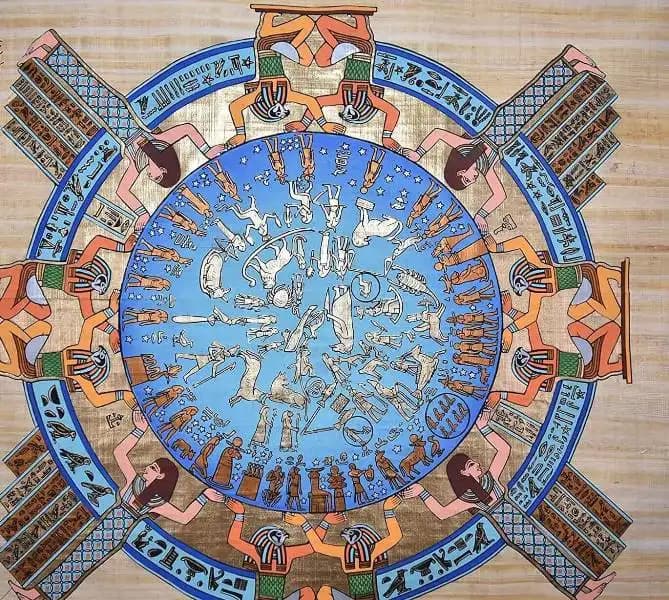
The ancient Egyptian calendar is a remarkable reflection of the intelligence and deep understanding of nature possessed by one of history's most fascinating civilizations. Created with a profound appreciation for the cyclical patterns of the natural world, this calendar system crafted by the ancient Egyptians seamlessly blended elements of astronomy, religion, and practicality. Join us to explore the fascinating intricacies of The ancient Egyptian calendar design, its lasting impact, and its profound influence on subsequent cultures.
According to the ancient Egyptian calendar, the current year is 6266. This calendar, meticulously developed by the ancient Egyptians, meticulously divided the year into 12 months and 05 days, following the solar cycle. It is known as one of humanity's earliest known calendars, predating even the Gregorian calendar we commonly use today. Remarkably, the year 2024 in the Gregorian calendar aligns with the year 6266 in the Ancient Egyptian Calendar, underscoring its historical precedence as the world's inaugural calendar.
The ancient Egyptians not only measured the passage of time but also pioneered methods for tracking it. They astutely discerned the nuances of the solar year, effectively dividing it into seasons, months, days, and even hours. Among their many celestial achievements, the ancient Egyptians distinguished between standard years and leap years, showcasing their sophisticated understanding of astronomical phenomena.
The fabric of the ancient Egyptian calendar was intricately interwoven with the tapestry of agricultural life, reflecting the profound importance of farming in their society. It served as a faithful companion to the rhythm of the land, ensuring harmony with the natural cycles of planting, growth, and harvest.
The ancient Egyptian calendar revered three sacred seasons:
- Flood Season (Akhet): Spanning from June to September, this season heralded the annual inundation of the Nile, bestowing fertile silt upon the land.
- Growth Season (Peret): From October to February, this period marked the time of planting and nurturing crops.
- Harvest Season (Shemu): Encompassing the months of March to May, this season ushered in the bountiful gathering of crops and their subsequent storage.
These seasons formed the cornerstone of ancient Egyptian society, guiding agricultural practices and ensuring the prosperity of the land.
The ancient Egyptian calendar boasted a solar-based structure, comprising 365 days meticulously divided into 12 months, each consisting of 30 days. To harmonize with the solar year's slight variation, an additional 05 days were appended to the calendar's end. Furthermore, a religious calendar, rooted in 29 1/2-day lunar cycles, played a vital role in celestial and agricultural observations.
The ancient Egyptian calendar's enduring influence reverberated far beyond the banks of the Nile. The Greeks, profoundly inspired by Egyptian wisdom, adopted a similar calendar, which eventually evolved into the Julian calendar, shaping European timekeeping for over 1,500 years. Moreover, the ancient Egyptians' celestial insights laid the groundwork for astrology, with their beliefs and observations permeating cultures worldwide.
Throughout the ancient Egyptian calendar, a tapestry of vibrant festivals punctuated the passage of time, each commemorating celestial events and cultural traditions. From the New Year's festivities of Wepet Renpet to the joyful celebrations of the Festival of Hathor and Opet festival, these rituals provided a window into the rich tapestry of ancient Egyptian life.
In conclusion, the ancient Egyptian calendar transcends mere timekeeping; it serves as a profound testament to humanity's enduring quest to understand and harmonize with the rhythms of nature. Through its structured framework and enduring legacy, it continues to captivate the imagination and inspire awe. As we navigate the currents of time, may we draw inspiration from the ancient Egyptians' wisdom and forge our path toward harmony and enlightenment.
“In my opinion, I believe a good writer makes content easy to read, and entertains the reader, making comprehension effortless. Egypt is a country that truly has it all. Its rich history, stunning landscapes, and friendly people make it a must-visit destination for any traveler. I hope you'll have the opportunity to experience it for yourself.
By Egypt Travel Blogger